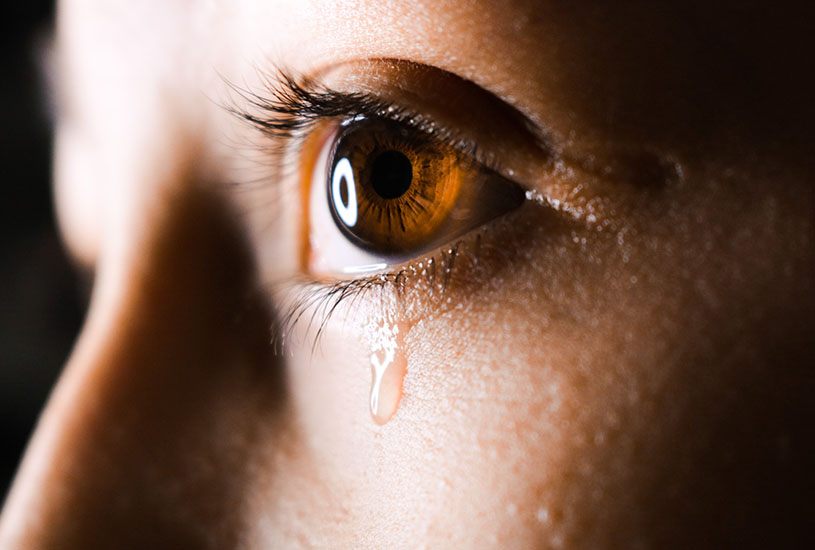Deakin research on the effectiveness of bystander intervention is underpinning a new campaign to reduce Victoria’s incidence of family violence.
A report by researchers at Deakin University will inform the next phase of the Victorian “Bystanders for Primary Prevention Program,” which aims to empower Victorians to call out discrimination and disrespect when they see it.
Bystander intervention requires individuals to recognise and interrupt harmful situations. It could include overhearing and responding to a sexist joke, or calling out harassment or controlling behaviour, and has been shown to be one of the most effective means of preventing violence against women and family violence.
The campaign is being run in partnership with VicHealth and was recently launched by the Victorian Minister for the Prevention of Family Violence, the Hon Natalie Hutchins MP. It will instigate new ways to support bystander interventions, including new ways to make intervention simpler.
“Everyone has a role to play to prevent family violence and all forms of violence against women. Calling out disrespectful or discriminatory behaviour starts with each of us,” said Ms Hutchins.
It is estimated that one in three Australian women has experienced physical violence, since the age of 15, and one woman a week is murdered by her current or former partner, according to the most recent analysis of homicide statistics in Australia.
VicHealth funded the development of the report, “Bystanders for Primary Prevention: a rapid review,” to build understanding of what drives and encourages people to intervene when they witness sexist behaviour. It was developed by Professor Ann Taket, Deakin Chair in Health and Social Exclusion, and her colleague Professor Beth Crisp from Deakin’s School of Health and Social Development, who undertook a literature review that drew on their edited book “Eliminating Gender-Based Violence.”
“Our research over the past 10 years has shown that a variety of programs that include interactive and active skill-based learning components are needed to encourage men and women to step up and step in when they hear a derogatory remark. It is a very important first step,” said Professor Taket.
[testimonial_text]Challenging violence, abuse, harassment and discrimination is central to creating a society consistent with the Australian value of a ‘fair go,’ in which the human rights of all individuals and groups are protected and promoted.[/testimonial_text]
[testimonial_picture name=”Professor Ann Taket” details=”Deakin Chair in Health and Social Development”]
 [/testimonial_picture]
[/testimonial_picture]There is now a wide body of research which shows that verbal denigration and put-downs underlie violence against women – showing a lack of respect – and have a similar effect on other groups who are marginalised or discriminated against.
“We all have an important role to play as prosocial bystanders in the different settings of life: workplaces, schools, universities, sporting clubs and communities” said Professor Taket.
“Our review demonstrates that there are opportunities for implementing programs to support effective prosocial bystander action in each of the different settings in society.
“We have identified nine key design principles that underlie effective bystander programs and in the review we describe promising or effective programs that can be applied in a wide variety of settings. This is a resource that will assist anti-discrimination program funders around the world in their funding decisions.”
Professors Taket and Crisp are members of the reference group for the inaugural national conference “Respect. Prevent. Respond: Preventing and Responding to Sexual Harm in the Tertiary Education Sector.” The conference is part of Deakin’s “Respect. Now. Always” initiative and will be held on 5 – 6 February 2019 at Deakin Downtown.
The conference will gather those who have been involved in this initiative from various Australian institutions to share ideas, learn new things and create future opportunities for sector-wide collaboration in the elimination of sexual harm in the Higher Education, VET and TAFE sectors.
“Deakin has done some pioneering work in this field in the tertiary sector. Under the leadership of the Vice-Chancellor (Professor Jane den Hollander), we have been very proactive in this space,” said Professor Taket.
The work of Professor Taket and her Deakin colleagues has also led to the development of theatre-based programs that educate and encourage pro-social bystander action around violence against and in support of women and trans and gender diversity. The plays, “You the Man,” and “Being Frank” are performed at secondary schools, universities, workplaces, sports clubs and community groups around Victoria.
Three performances of “Being Frank” will be held on Deakin campuses this year (May 15-17), including a performance on IDAHOBIT day (IDAHOBIT is the International Day Against Homophobia, Transphobia and Biphobia) These deliveries are organised in partnership with Deakin’s Equity and Diversity Division, as part of the activities linked to Deakin’s LGBTIQ + Plan 2017-2020.
Read more:
- “Bystanders for Primary Prevention: a rapid review”
- “Eliminating Gender-Based Violence,” Edited by Ann Taket and Beth R. Crisp.
- “Respect. Prevent. Respond” conference.
Published by Deakin Research on 6 April 2018



